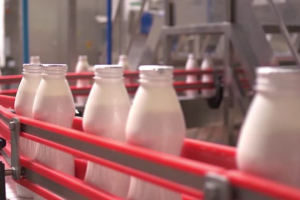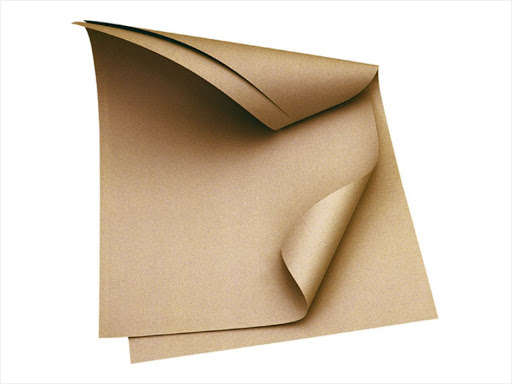An expert explained what preferences the trade agreement with the UAE will provide to EAEU countries.

Photo is illustrative in nature. From open sources.
June 27, Minsk . Andrei Slepnev, Member of the Board (Minister) for Trade of the Eurasian Economic Commission, listed the preferences that the economic partnership agreement between the Eurasian Economic Union and the United Arab Emirates will provide to EAEU countries . This was reported to BELTA by the EEC trade bloc.
Work on concluding the economic partnership agreement between the EAEU and the UAE, aimed at maximizing cooperation, lasted two and a half years. The conditions created will significantly increase trade turnover between the parties. The United Arab Emirates is one of the EAEU's main trading partners among the Persian Gulf countries. The signed economic partnership agreement is expected to mark a new milestone in trade relations with the UAE and elevate mutual trade to a qualitatively new level.
"As part of the new trade regime being formed, the Emirati side has opened preferential access for 86% of the product range. For its part, the EAEU concessions cover 85% of the product range for the partner," noted Andrey Slepnev.
He specified that the preferential export coverage for our countries in value terms will cover more than 98% of current exports, or more than $12.1 billion. As a result of the liberalization of the trade regime, the average rate applied by the UAE to EAEU goods will be reduced from 5% to 0.6%. Thus, the annual savings on import customs duties are estimated at more than $260 million.
In terms of goods, preferential access will be provided for such key agricultural goods of the EAEU as grains (wheat, barley, corn), meat ( cattle , lamb , offal), poultry , eggs , dried vegetables (chickpeas,peas , lentils, beans), vegetable oil , dairy products (whole milk , powdered milk , yoghurts, whey, butter, cheeses ), confectionery, honey, mineral water, jams, chocolate.
In the industrial sector, concessions are provided for the following categories of goods: products of the metallurgical industry (rolled products of alloy steel, hot-rolled and cold-rolled products, finished products made of ferrous metals, pipes, profiles and angles, iron wire, aluminum and copper wire, aluminum foil, etc.), petroleum products (including light and other distillates), products of the forestry complex (boards, plywood, pallets, furniture, etc.), cellulose, printed products, drilling tools, a wide range of mechanical equipment, from turbines to certain types of pumps.
Liberalization will also apply to electrical equipment (electric generators, primary cells and primary batteries, electric accumulators, etc.), railway containers, motor vehicles, including special-purpose equipment, cosmetics (hair products, perfumes, deodorants, etc.), chemical products (paints, oils, surfactants, fertilizers), and pharmaceuticals.
The United Arab Emirates will be able to increase supplies of a wide range of consumer goods, including cosmetics, perfumes, watches , and certain types of clothing.
"The agreement is truly ambitious, not only in terms of tariff liberalization but also in terms of the regulatory environment it creates," noted Andrey Slepnev.
He added that the document enshrines provisions that meet the best international standards in e-commerce, economic cooperation, and the involvement of small and medium-sized businesses in foreign economic activity between the countries.
"Our trade has more than tripled since 2020. Thanks to the enthusiasm of businesses and the active work of the EEC and the countries' regulators, trade turnover could exceed $20 billion in the near future after the agreement comes into force," the EEC Minister expressed confidence.
After signing, the economic partnership agreement will be submitted to the UAE and the EAEU countries for ratification procedures, which are necessary for its entry into force.
Work on concluding the economic partnership agreement between the EAEU and the UAE, aimed at maximizing cooperation, lasted two and a half years. The conditions created will significantly increase trade turnover between the parties. The United Arab Emirates is one of the EAEU's main trading partners among the Persian Gulf countries. The signed economic partnership agreement is expected to mark a new milestone in trade relations with the UAE and elevate mutual trade to a qualitatively new level.
"As part of the new trade regime being formed, the Emirati side has opened preferential access for 86% of the product range. For its part, the EAEU concessions cover 85% of the product range for the partner," noted Andrey Slepnev.
He specified that the preferential export coverage for our countries in value terms will cover more than 98% of current exports, or more than $12.1 billion. As a result of the liberalization of the trade regime, the average rate applied by the UAE to EAEU goods will be reduced from 5% to 0.6%. Thus, the annual savings on import customs duties are estimated at more than $260 million.
In terms of goods, preferential access will be provided for such key agricultural goods of the EAEU as grains (wheat, barley, corn), meat ( cattle , lamb , offal), poultry , eggs , dried vegetables (chickpeas,peas , lentils, beans), vegetable oil , dairy products (whole milk , powdered milk , yoghurts, whey, butter, cheeses ), confectionery, honey, mineral water, jams, chocolate.
In the industrial sector, concessions are provided for the following categories of goods: products of the metallurgical industry (rolled products of alloy steel, hot-rolled and cold-rolled products, finished products made of ferrous metals, pipes, profiles and angles, iron wire, aluminum and copper wire, aluminum foil, etc.), petroleum products (including light and other distillates), products of the forestry complex (boards, plywood, pallets, furniture, etc.), cellulose, printed products, drilling tools, a wide range of mechanical equipment, from turbines to certain types of pumps.
Liberalization will also apply to electrical equipment (electric generators, primary cells and primary batteries, electric accumulators, etc.), railway containers, motor vehicles, including special-purpose equipment, cosmetics (hair products, perfumes, deodorants, etc.), chemical products (paints, oils, surfactants, fertilizers), and pharmaceuticals.
The United Arab Emirates will be able to increase supplies of a wide range of consumer goods, including cosmetics, perfumes, watches , and certain types of clothing.
"The agreement is truly ambitious, not only in terms of tariff liberalization but also in terms of the regulatory environment it creates," noted Andrey Slepnev.
He added that the document enshrines provisions that meet the best international standards in e-commerce, economic cooperation, and the involvement of small and medium-sized businesses in foreign economic activity between the countries.
"Our trade has more than tripled since 2020. Thanks to the enthusiasm of businesses and the active work of the EEC and the countries' regulators, trade turnover could exceed $20 billion in the near future after the agreement comes into force," the EEC Minister expressed confidence.
After signing, the economic partnership agreement will be submitted to the UAE and the EAEU countries for ratification procedures, which are necessary for its entry into force.



























































